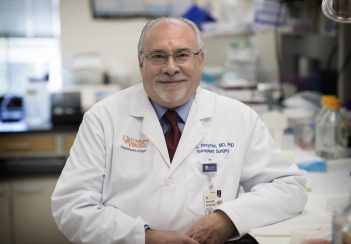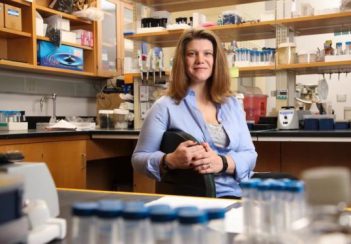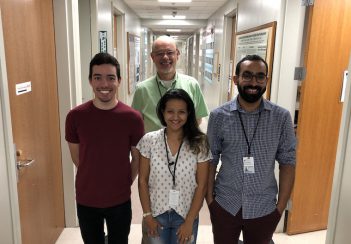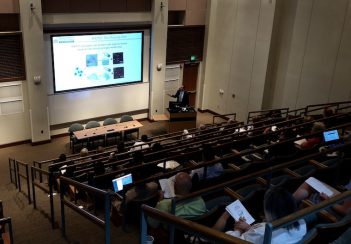
The artificial pancreas pioneered here at UVA is more effective than existing treatments at controlling blood sugar in people with type 1 diabetes, a new study in the prestigious New England Journal of Medicine has found.

The artificial pancreas pioneered here at UVA is more effective than existing treatments at controlling blood sugar in people with type 1 diabetes, a new study in the prestigious New England Journal of Medicine has found.

Our Kenneth Brayman, MD, and his colleagues are hot on the trail of what they believe could be a way to prevent type 1 diabetes. The solution, they think, could be a concentrated form of a naturally occuring antibody called human immunoglobulin, or IgM.

A promising cancer drug that's being developed based on a discovery by our Kimberly Kelly, PhD, is attracting major interest -- to the tune of $25 million.

When our David Kashatus, PhD, was first interviewing here in 2012, he laid out an ambitious research project that would help us better understand pancreatic cancer. Seven years later, he has completed that work and given us important new insights into how the aggressive cancer fuels its growth.

Young scientists from Brazil have joined the School of Medicine this semester as part of a new exchange program. One tells us what it's like coming to America.

The Integrated Translational Health Research Institute of Virginia (iTHRIV), which aims to improve the health of people across the state and beyond, this week spotlighted clinical research findings from the last year. The work was impressive.